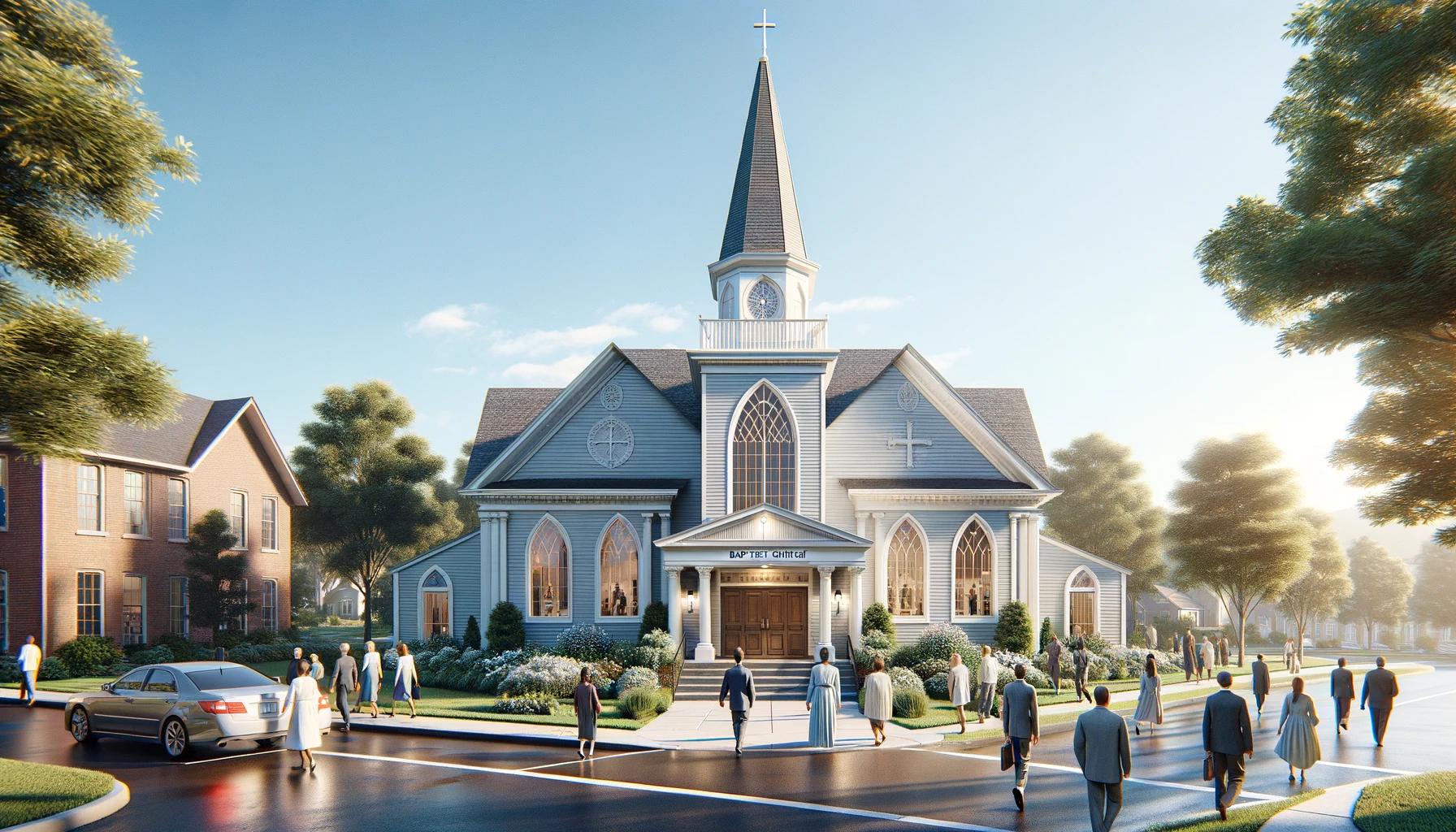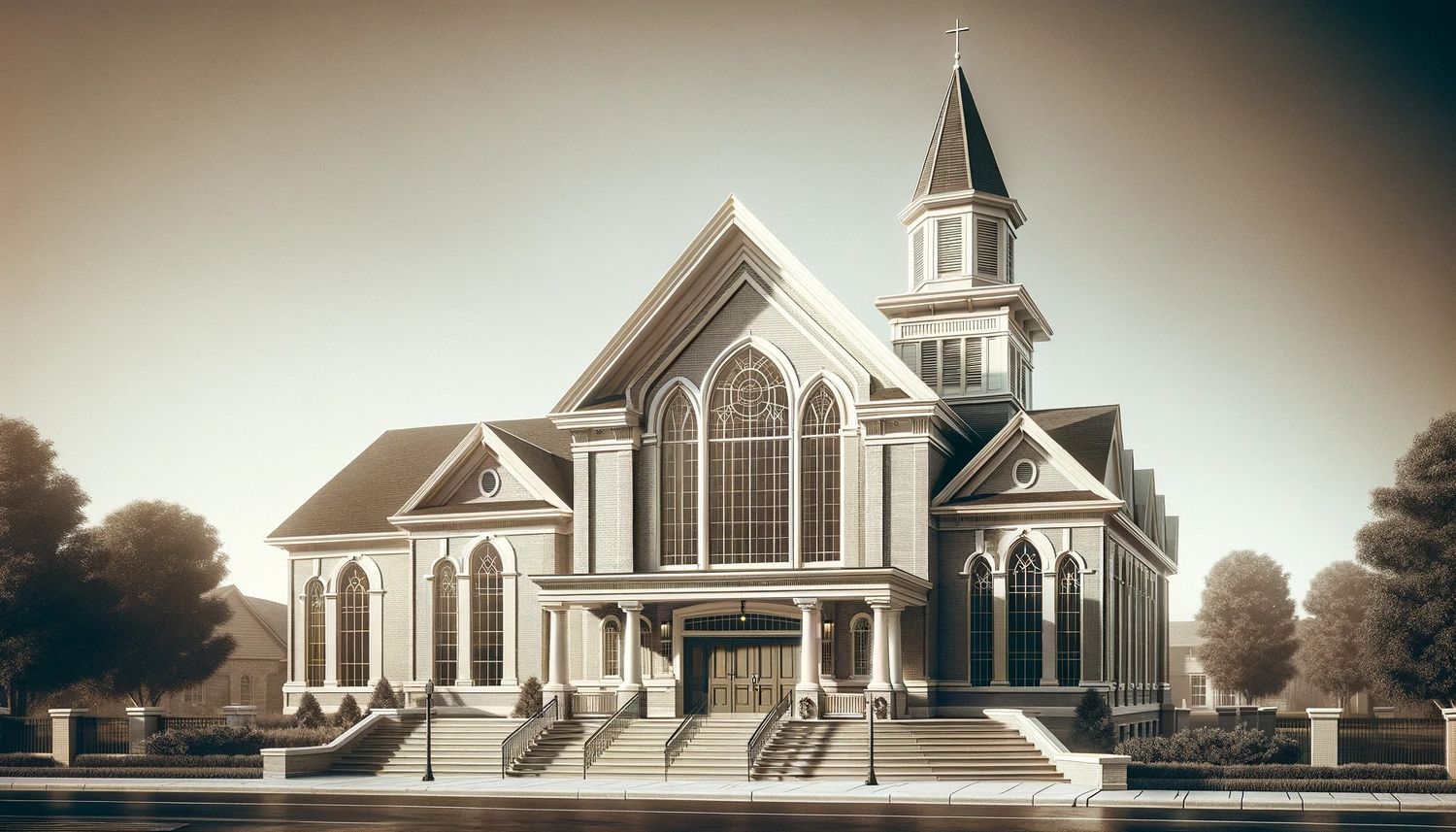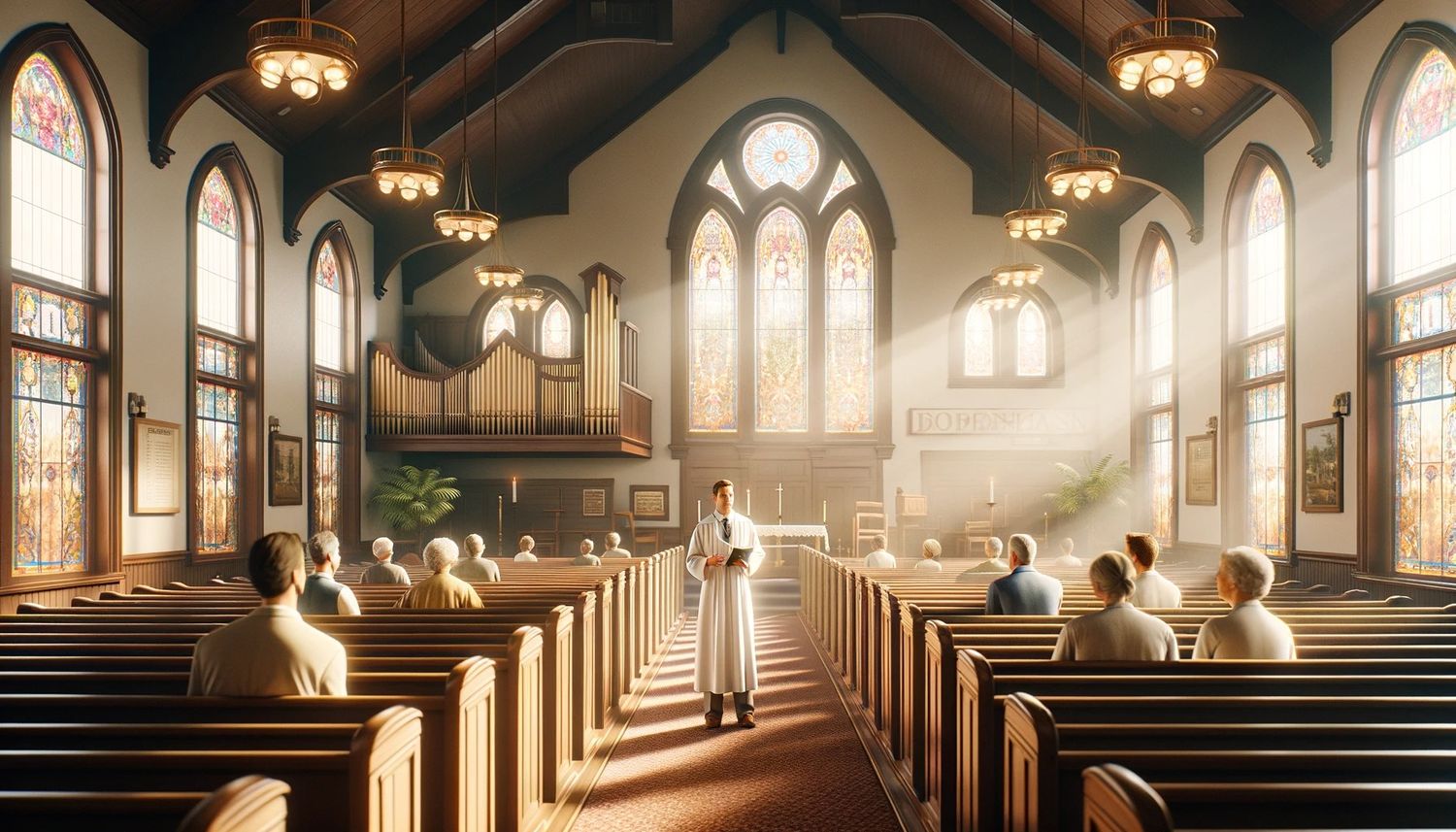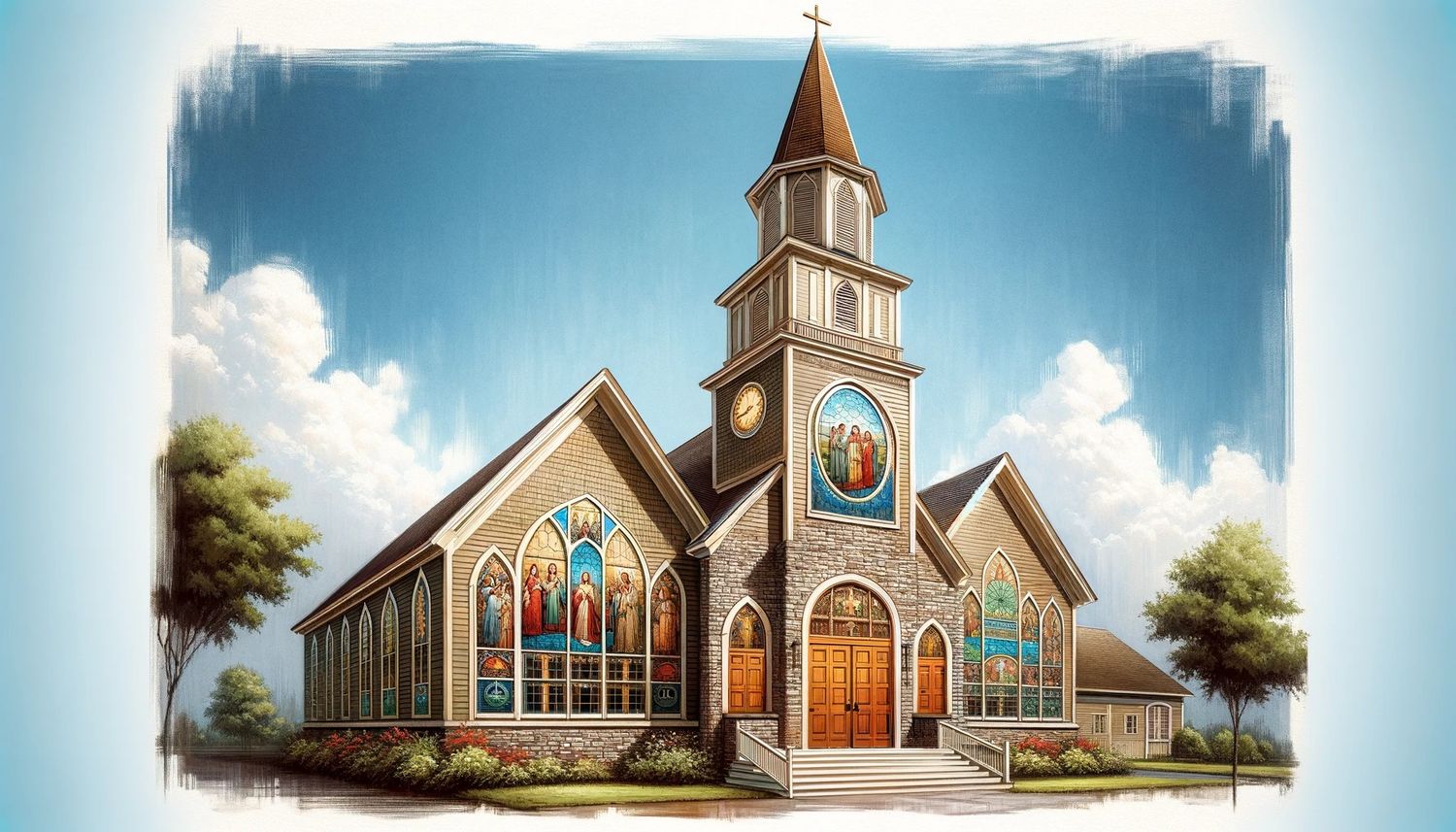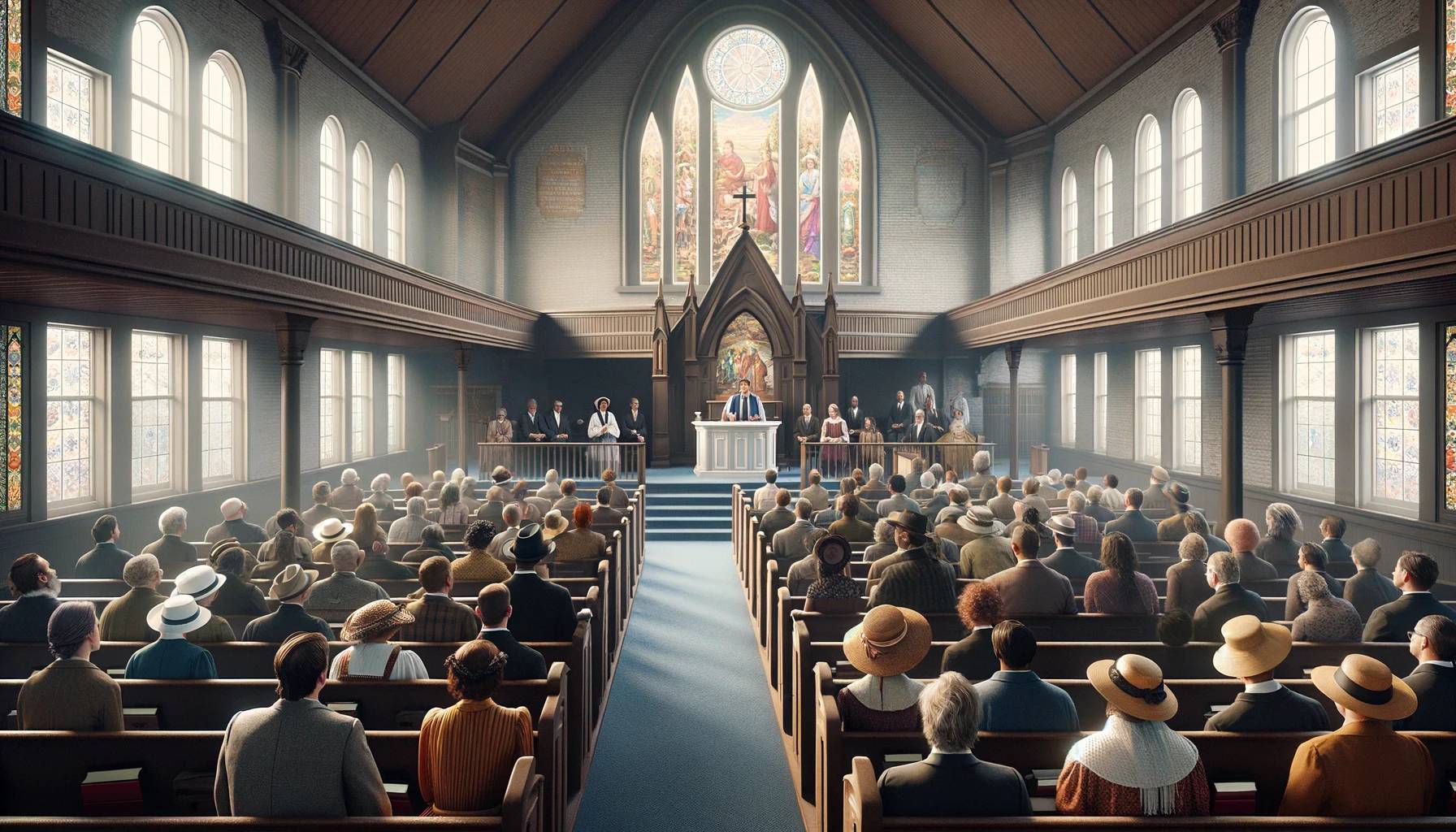Home>Theology and Spirituality>What Is A Reformed Baptist Church?


Theology and Spirituality
What Is A Reformed Baptist Church?
Published: February 21, 2024
Ericka Andersen, an editor at Christian.net, expertly merges digital strategy with content creation, focusing on faith and societal issues. Her communication skills enhance the platform's engaging narratives, fostering meaningful dialogue on belief's impact on society.
Discover the core beliefs and practices of Reformed Baptist churches, exploring their unique approach to theology and spirituality. Learn about their distinct perspectives on faith and worship.
(Many of the links in this article redirect to a specific reviewed product. Your purchase of these products through affiliate links helps to generate commission for Christian.net, at no extra cost. Learn more)
Table of Contents
Introduction
Reformed Baptist churches are a distinctive branch within the broader Baptist tradition, characterized by their adherence to Reformed theology and commitment to the authority of Scripture. This unique blend of theological perspectives sets them apart from other Baptist denominations and contributes to their rich historical and doctrinal heritage.
Reformed Baptist churches trace their roots to the 17th century, when the Reformation movement was gaining momentum across Europe. Influenced by the teachings of theologians such as John Calvin and Ulrich Zwingli, the Reformed tradition emphasizes the sovereignty of God, the depravity of humanity, and the ultimate authority of Scripture in matters of faith and practice. This theological framework forms the cornerstone of Reformed Baptist identity and informs their beliefs and practices.
In understanding the essence of Reformed Baptist churches, it is essential to recognize their commitment to the doctrines of grace, commonly summarized by the acronym TULIP: Total depravity, Unconditional election, Limited atonement, Irresistible grace, and Perseverance of the saints. These doctrines underscore the Reformed Baptist emphasis on God's sovereignty in salvation and the utter dependence of individuals on His grace for redemption.
Furthermore, Reformed Baptist churches uphold the principle of covenant theology, which underscores the continuity of God's redemptive plan throughout history and the centrality of the covenant relationship between God and His people. This theological framework shapes their understanding of the church, sacraments, and the interpretation of Scripture.
As we delve into the history, beliefs, and practices of Reformed Baptist churches, it becomes evident that their distinct theological convictions and commitment to the authority of Scripture have contributed to a vibrant and enduring tradition within the broader Baptist family. This article will explore the historical development of Reformed Baptist churches, their core beliefs and practices, and the unique aspects that differentiate them from other Baptist denominations. Through this exploration, readers will gain a deeper understanding of the rich theological tapestry that defines Reformed Baptist churches and the enduring impact of their heritage on contemporary Christian faith and practice.
Read more: What Is A Reformed Baptist?
History of Reformed Baptist Churches
The history of Reformed Baptist churches is deeply intertwined with the broader narrative of the Protestant Reformation and the subsequent development of Reformed theology. The roots of Reformed Baptist churches can be traced back to the 17th century, a pivotal period marked by theological ferment and ecclesiastical realignment. During this era, the Reformation movement, with its emphasis on the sovereignty of God and the authority of Scripture, exerted a profound influence on the theological landscape of Europe and beyond.
The emergence of Reformed Baptist churches can be attributed to the convergence of Reformed theology and Baptist principles. Influenced by the teachings of prominent Reformed theologians such as John Calvin and Ulrich Zwingli, early proponents of Reformed Baptist theology sought to integrate the doctrinal emphases of Reformed theology with the distinctive ecclesiological convictions of the Baptist tradition. This fusion of theological perspectives gave rise to a unique theological framework that distinguished Reformed Baptist churches from other denominational expressions within the broader Baptist tradition.
One of the defining moments in the historical trajectory of Reformed Baptist churches was the 1689 London Baptist Confession of Faith. This confessional document, also known as the Second London Confession, served as a foundational statement of faith for many Reformed Baptist congregations. It articulated key theological tenets, including the sovereignty of God in salvation, the depravity of humanity, and the authority of Scripture, thereby solidifying the doctrinal distinctives of Reformed Baptist churches.
Throughout subsequent centuries, Reformed Baptist churches continued to uphold their distinctive theological heritage while adapting to diverse cultural and geographical contexts. The enduring legacy of Reformed Baptist churches is evident in their commitment to Reformed theology, covenantal principles, and the primacy of Scripture, which have shaped their ecclesiological identity and doctrinal convictions.
In contemporary times, Reformed Baptist churches remain a vital and dynamic expression of the broader Baptist tradition, embodying a rich historical legacy and a robust theological framework. Their historical journey reflects a steadfast commitment to the foundational principles of Reformed theology within the context of Baptist ecclesiology, underscoring the enduring significance of their historical development and doctrinal distinctives within the tapestry of Christian faith and practice.
Beliefs and Practices
Reformed Baptist churches are distinguished by their robust doctrinal convictions and distinctive ecclesiological practices, which are deeply rooted in Reformed theology and the primacy of Scripture. Central to their beliefs is the adherence to the doctrines of grace, encapsulated in the acronym TULIP: Total depravity, Unconditional election, Limited atonement, Irresistible grace, and Perseverance of the saints. These doctrines underscore the Reformed Baptist emphasis on the sovereignty of God in salvation and the utter dependence of individuals on His grace for redemption.
Furthermore, Reformed Baptist churches embrace covenant theology, which emphasizes the continuity of God's redemptive plan throughout history and underscores the covenantal relationship between God and His people. This theological framework informs their understanding of the church, sacraments, and the interpretation of Scripture, shaping their ecclesiological practices and doctrinal distinctives.
In terms of worship and polity, Reformed Baptist churches typically adhere to a congregational form of governance, wherein the local congregation exercises autonomy in decision-making and church administration. This congregational polity is complemented by a commitment to the priesthood of all believers, affirming the active participation of the entire church body in matters of faith and practice.
Regarding sacraments, Reformed Baptist churches generally practice believer's baptism and the Lord's Supper. Baptism is viewed as a public declaration of faith and a symbol of union with Christ in His death and resurrection, while the Lord's Supper is celebrated as a commemoration of Christ's atoning sacrifice and a means of spiritual nourishment for believers.
In the realm of worship, Reformed Baptist churches prioritize the expository preaching of Scripture, robust congregational singing, and prayer as integral components of their corporate gatherings. The centrality of Scripture in worship underscores their commitment to the authority of God's Word and its transformative impact on the life of the church.
Overall, the beliefs and practices of Reformed Baptist churches reflect a deep-seated commitment to Reformed theology, covenantal principles, and the authority of Scripture, shaping their ecclesiological identity and doctrinal distinctives. This theological framework permeates every aspect of their corporate worship, church governance, and sacramental practices, underscoring the enduring impact of their rich theological heritage on the life and mission of the church.
Differences from Other Baptist Churches
Reformed Baptist churches exhibit distinct theological and ecclesiological differences from other Baptist denominations, stemming from their adherence to Reformed theology and covenantal principles. One of the primary distinctions lies in their embrace of the doctrines of grace, commonly summarized by the acronym TULIP, which emphasizes the sovereignty of God in salvation. This theological emphasis sets them apart from Arminian-leaning Baptist traditions, where the doctrines of election and predestination are understood differently.
Furthermore, Reformed Baptist churches uphold covenant theology, viewing the covenants as integral to understanding God's redemptive plan throughout history. This contrasts with dispensationalist perspectives found in some Baptist circles, where the emphasis is placed on distinct dispensations or periods in God's dealings with humanity. The covenantal framework shapes Reformed Baptist interpretations of Scripture, ecclesiology, and the sacraments, contributing to a distinctive theological landscape within the broader Baptist tradition.
In terms of worship and polity, Reformed Baptist churches often adhere to a more structured and liturgical approach compared to many contemporary Baptist congregations. The emphasis on expository preaching, robust congregational singing, and the regular observance of the Lord's Supper reflects their commitment to a reverent and biblically informed worship experience. Additionally, their congregational form of governance, while shared with many Baptist churches, is informed by a distinct theological framework that underscores the priesthood of all believers and the autonomy of the local church.
Another notable difference lies in the understanding of baptism. Reformed Baptist churches practice believer's baptism, viewing it as a public profession of faith and a symbol of union with Christ, in contrast to the infant baptism practiced in some other branches of the Baptist tradition. This theological distinction reflects varying perspectives on the nature and recipients of baptism, contributing to the diversity within the broader Baptist family.
Overall, the differences between Reformed Baptist churches and other Baptist denominations are rooted in their distinctive theological emphases, ecclesiological practices, and interpretations of Scripture. While sharing common Baptist heritage, Reformed Baptist churches offer a unique theological perspective that enriches the broader tapestry of Baptist traditions and contributes to the diversity of theological expression within the global Christian community.
Role of Scripture in Reformed Baptist Churches
The role of Scripture in Reformed Baptist churches is foundational and central to every aspect of their faith and practice. At the core of their theological framework is a deep commitment to the authority, sufficiency, and transformative power of the Bible. Scripture is revered as the inspired and inerrant Word of God, serving as the ultimate standard for belief, worship, and conduct within the church community.
In Reformed Baptist theology, the Scriptures are viewed as the primary means through which God reveals His character, redemptive plan, and moral precepts to humanity. The doctrine of sola scriptura, or the belief in the Bible as the sole infallible rule of faith, underscores the unparalleled significance of Scripture in shaping the doctrinal convictions and ethical principles of Reformed Baptist churches.
The expository preaching of Scripture holds a prominent place in the worship and teaching ministries of Reformed Baptist churches. Pastors and teachers are committed to unpacking the meaning and application of biblical texts in a systematic and comprehensive manner, allowing the Word of God to speak with clarity and authority to the congregation. This emphasis on expository preaching reflects the conviction that the Scriptures are the living and active revelation of God, capable of transforming hearts and renewing minds.
Furthermore, the authority of Scripture permeates the ecclesiological practices of Reformed Baptist churches, influencing their understanding of church governance, sacraments, and the role of believers in the body of Christ. The regulative principle of worship, derived from the authority of Scripture, guides their corporate worship practices, ensuring that all elements of worship are grounded in biblical precepts and principles.
In the realm of personal and communal discipleship, the Scriptures serve as the ultimate source of wisdom, guidance, and correction for believers. The study and application of Scripture are integral to the spiritual formation and growth of individuals within the church, fostering a deep appreciation for the transformative power of God's Word in shaping Christian character and conduct.
Overall, the role of Scripture in Reformed Baptist churches is multifaceted and profound, shaping their theological convictions, worship practices, and communal life. The Scriptures are not merely a historical record or a doctrinal guide but are revered as the living and authoritative revelation of God, essential for equipping the church for every good work and guiding them in the path of faithfulness and obedience.
Conclusion
In conclusion, the distinctive identity of Reformed Baptist churches is intricately woven with the rich tapestry of Reformed theology, covenantal principles, and a steadfast commitment to the authority of Scripture. Throughout their historical journey, Reformed Baptist churches have remained faithful to their doctrinal distinctives, embodying a theological heritage that continues to shape their beliefs, practices, and communal life.
The historical development of Reformed Baptist churches reflects a convergence of Reformed theology and Baptist principles, culminating in a unique theological framework that distinguishes them within the broader Baptist tradition. The 1689 London Baptist Confession of Faith stands as a testament to their doctrinal commitments, articulating key theological tenets that have endured through the centuries and continue to inform their faith and practice.
Central to the beliefs and practices of Reformed Baptist churches is the unwavering adherence to the doctrines of grace, covenant theology, and a robust commitment to the authority of Scripture. These foundational pillars undergird every aspect of their ecclesiological identity, shaping their understanding of salvation, the church, sacraments, and worship.
Furthermore, the distinct theological and ecclesiological differences between Reformed Baptist churches and other Baptist denominations underscore the diverse expressions of Baptist heritage and theological interpretation. While sharing a common historical lineage, Reformed Baptist churches offer a unique perspective that enriches the broader landscape of Baptist traditions and contributes to the theological diversity within the global Christian community.
The role of Scripture in Reformed Baptist churches is paramount, permeating every facet of their communal life and worship. The Scriptures are revered as the inspired and authoritative Word of God, guiding their doctrinal convictions, ethical principles, and worship practices. The commitment to expository preaching, the regulative principle of worship, and the transformative impact of Scripture on personal and communal discipleship exemplify the enduring significance of God's Word within the life of Reformed Baptist churches.
In essence, the enduring legacy of Reformed Baptist churches is a testament to their unwavering commitment to Reformed theology, covenantal principles, and the authority of Scripture. Their historical journey, doctrinal distinctives, and ecclesiological practices collectively contribute to a vibrant and enduring tradition within the broader Baptist family, underscoring the enduring impact of their theological heritage on contemporary Christian faith and practice.

